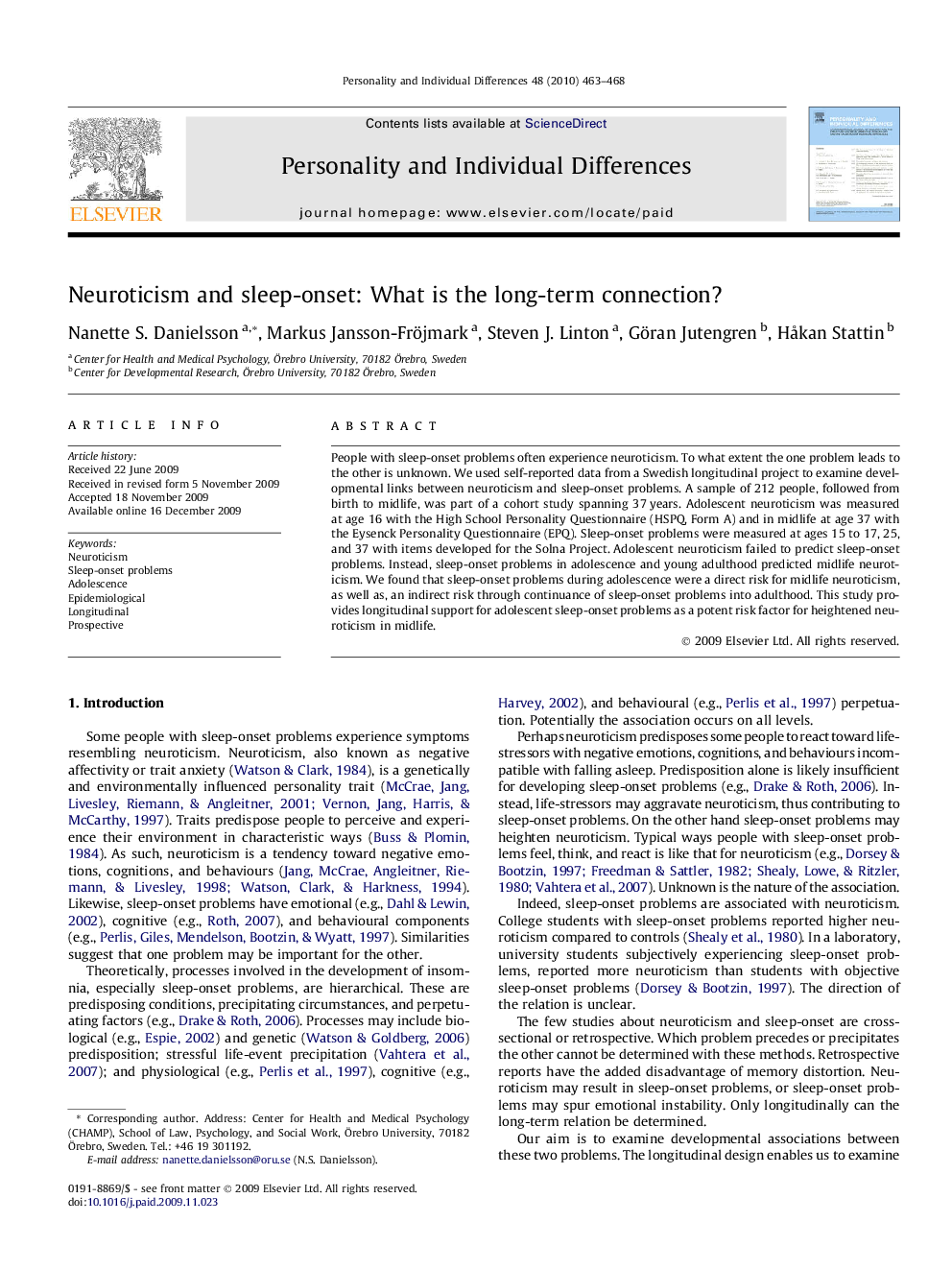| Article ID | Journal | Published Year | Pages | File Type |
|---|---|---|---|---|
| 892159 | Personality and Individual Differences | 2010 | 6 Pages |
People with sleep-onset problems often experience neuroticism. To what extent the one problem leads to the other is unknown. We used self-reported data from a Swedish longitudinal project to examine developmental links between neuroticism and sleep-onset problems. A sample of 212 people, followed from birth to midlife, was part of a cohort study spanning 37 years. Adolescent neuroticism was measured at age 16 with the High School Personality Questionnaire (HSPQ, Form A) and in midlife at age 37 with the Eysenck Personality Questionnaire (EPQ). Sleep-onset problems were measured at ages 15 to 17, 25, and 37 with items developed for the Solna Project. Adolescent neuroticism failed to predict sleep-onset problems. Instead, sleep-onset problems in adolescence and young adulthood predicted midlife neuroticism. We found that sleep-onset problems during adolescence were a direct risk for midlife neuroticism, as well as, an indirect risk through continuance of sleep-onset problems into adulthood. This study provides longitudinal support for adolescent sleep-onset problems as a potent risk factor for heightened neuroticism in midlife.
